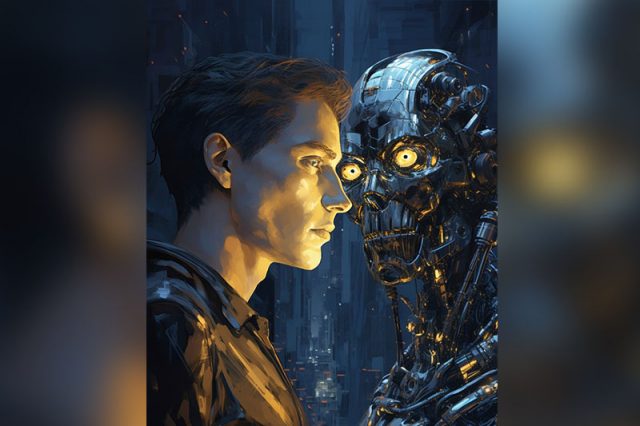A digital artist warned Filipinos about supporting “AI arts” after his BINI artworks were stolen and used to sell photo cards.
Gerard Quizon, who runs the page “Art of Maku,” found out that some of his creative works featuring members of the famous P-pop girl group were used to create 3D photo cards.
A digital soft copy of his artworks was also being sold online.
“Ito naman ninakaw na, ni-convert pa [niya] sa AI. Tsk,” Quizon wrote on his Facebook page on July 11, sharing a screengrab of the post featuring his artworks.
“‘Di ko po binebenta ‘yung #biniavatars unless may formal negotiation [or] usage. Salamatss,” he added.
In another post, Quizon said his artworks became a “straightforward AI victim.”
“Kaya ‘wag po kayo nag-su-support ng AI arts. Dahil ganyan ang trabaho [niyan]. Kumuha ng material sa legit na artist tapos i-transform then pagkakitaan,” he wrote on Facebook.
“Kung hindi ko naman ginawa ‘yang #BINIavatars, wala naman ma-ge-generate na ganyan. Ang ending, maiiwan ‘yung real artist. Mas malaki pa market nila,” Quizon said.
He also juxtaposed his digital artwork (left) to that of the produced photo cards (right).
In the comments, Jerson Lapura, an individual who describes himself as a multimedia enthusiast with a passion for graphic design, video editing and music, admitted to the action.
“I would just like to acknowledge the seriousness of this situation and also, would like to express my apologies to Sir Maku and even to everyone who [was] offended because of this,” he wrote.
Lapura then explained his actions, saying he did it to raise funds for their church.
“Initially, we were coming up with different initiatives of raising up funds for church matters and I suddenly came up with the idea of making merch. And since I like BINI, I thought I could make something and raise funds with this merch,” he said.
“I came across these art and was ecstatic if I could use it and I saw it in Google search. I admit na my grave mistake was to not acknowledge the creator of this art and impulsively just made the AI art and did all the layout stuff. And because, we needed the funds asap, I thought, maybe I can put it out there right away,” Lapura said.
“I acknowledge the offense this may have caused the artist and even to his supporters and so, I do not blame you for having all these sorts of reactions, for all of you are entitled and have all the free speech rights to do so,” he added.
Lapura acknowledged that the artworks were posted in some Facebook groups and in raket.ph but added that they “have not gained any profit from it.”
He added that they will “no longer” push with the merch following the incident.
“I do not have the audacity to request anything but hopefully, if everyone might want to consider and extend grace on this situation, please let us put out the fire once and for all,” Lapura said.
“I definitely have learned my lesson and will never do something impulsively as this in the coming future. Thank you, everyone, for your feedback. All of it [were] considered. God bless po!” he concluded.
Lapura also said that he sent Quizon a message on the latter’s page.
Meanwhile, some online users suggested that Quizon use tools like Glaze and Nightshade, which protect artwork from being scrapped by AI.
“If you haven’t already, and maybe for other artists dito sa comments, [please] try downloading Glaze and Nightshade po from the University of Chicago, tools po sila para i-poison ‘yung artworks and images mo bago i-post sa internet para mas mahirap i-kopya sa AI,” a Facebook user wrote.
“Pwede ka rin mag-request ng access para sa web version ng Glaze sa kanila pero medyo matagal lang proseso [kasi] i-check po nila portfolio mo kung ‘di ka gumamit ng AI. Here’s hoping more fellow artists fight back against [generative AI],” the user added.
Generative AI is a type of artificial intelligence technology that can produce types of content like text, imagery, audio and synthetic data.
To create images from prompts, AI image generators rely on databases of existing art and text.
Some artists believe generative AI blurs creative and ethical boundaries as their works can be used to generate images that may mimic or alter their style without their consent, among others.










